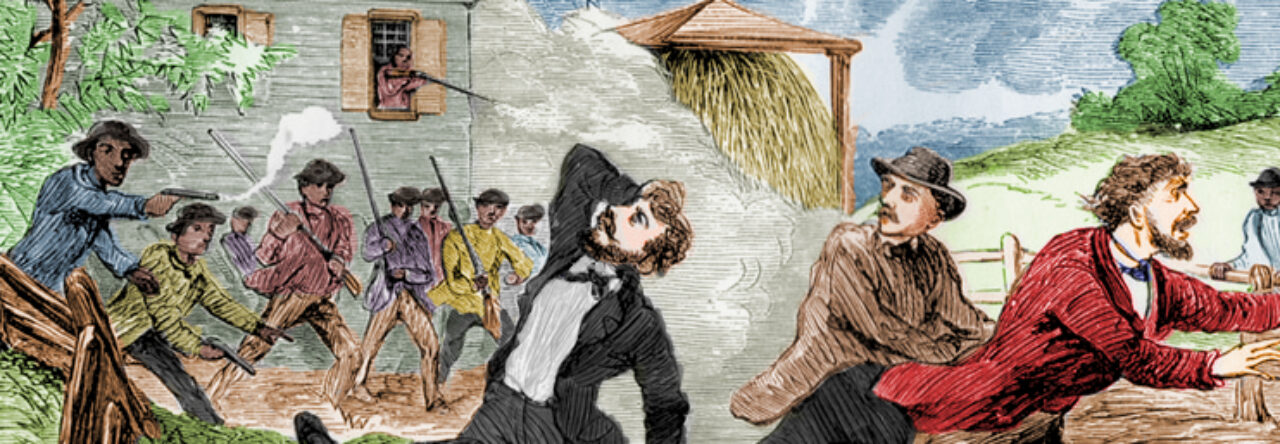Gilman Jones was a thread and spool manufacturer in Ashburnham, Massachusetts who sheltered and employed freedom seeker Josiah Thomas, his wife, and their child.
ESSAYS: Grover
ROLES: UGRR Operative

Gilman Jones was a thread and spool manufacturer in Ashburnham, Massachusetts who sheltered and employed freedom seeker Josiah Thomas, his wife, and their child.
ESSAYS: Grover
ROLES: UGRR Operative
John and Mary Jones were abolitionists in Chicago. In 1865, John won election as a commissioner for Cook County, Illinois.
ESSAYS: Sinha
ROLES: Antislavery Politician // UGRR Operative
Jane Kane was an enslaved woman who escaped with the help of her fiancée, Ben Ross, Jr., the brother of Harriet Tubman.
ESSAYS: Larson
ROLES: Freedom Seeker
Daniel Kaufman (1818-1902) was the last abolitionist to be convicted under the 1793 Fugitive Slave Act for harboring freedom seekers. In 1847, Kaufman sheltered a group of 13 freedom seekers at his farm in Boiling Springs, Pennsylvania. The freedom seekers escaped, but slaveholders sought damages from Kaufman and won in the third trial in 1852.
ROLES: UGRR Operative
Absalom King was a free African American activist in Redoak, Ohio. Slave catchers and vigilance forces battled at his home in 1844, and slaveholder Edward Towers’s son was shot and killed while attempting to recapture freedom seekers taking refuge with King.
ESSAYS: Churchill
ROLES: UGRR Operative
William King was a reverend and founder of the Elgin Association.
ESSAYS: Barker
ROLES: Abolitionist
Chauncey L. Knapp served as Vermont’s secretary of state and actively assisted freedom seekers.
ESSAYS: Grover
ROLES: Antislavery Politician // UGRR Operative
Willis Lago was a free Black man at the center of an extradition controversy between Ohio and Kentucky state authorities. Ohio governor Salmon P. Chase refused to extradite Lago to Kentucky for aiding runaway slaves in a case eventually decided by the US Supreme Court in Kentucky v. Dennison (1861).
ESSAYS: Baker
ROLES: UGRR Operative
George Latimer (1819-1897) was a freedom seeker whose escape and subsequent arrest prompted the passage of a groundbreaking new personal liberty law in Massachusetts. In 1842, Latimer and his pregnant wife, Rebecca, escaped from Norfolk, Virginia by boat. The couple reached Boston, where slave catchers quickly caught up with him. Antislavery activists purchased Latimer’s freedom, but popular outrage over his arrest led Massachusetts lawmakers to adopt a new personal liberty law in March 1843 barring state officials from cooperating with slaveholders, popularly known as the Latimer Law. Other Northern states followed suit, passing similar non-cooperation laws.
ESSAYS: Baker // Grover // Sinha
ROLES: Freedom Seeker
Powered by WordPress & Theme by Anders Norén